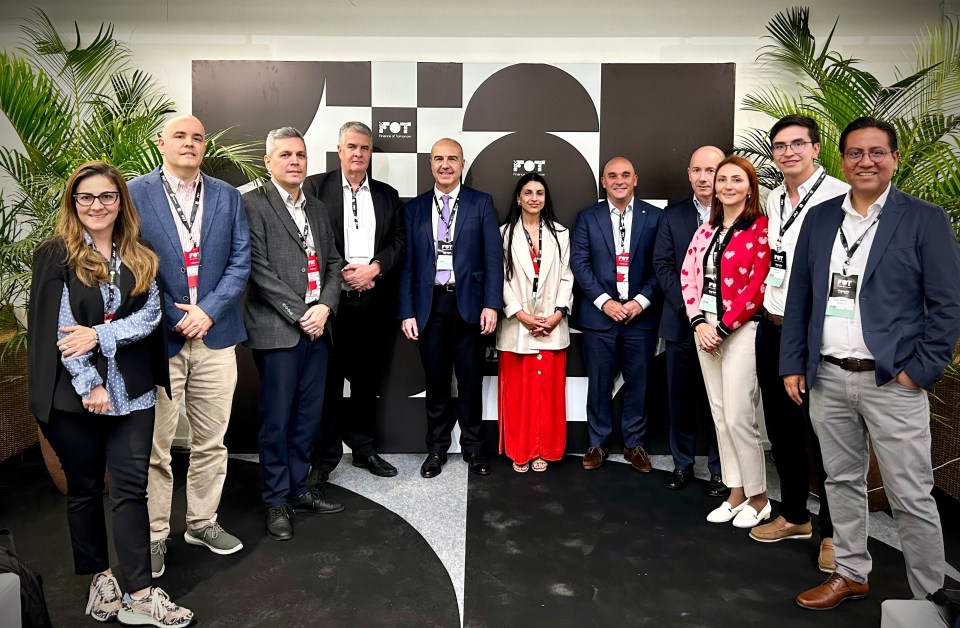
Finance rocks in Rio: The rise of Open Banking in Latin America

One of the UK’s hallmarks in global exports is its expertise and pioneering role in the Open Finance sector. Across the Atlantic, Latin America — a long-standing trade partner — has recently become a fertile ground for Open Finance, with new regulations advancing across at least five key countries: Brazil, Mexico, Colombia, Chile, and Argentina.
Each country’s journey reflects its unique regulatory environment, market conditions, and technological infrastructure. At the forefront, Brazil, the region’s largest market, has experienced a rapid adoption of Open Banking services, reaching 4.8 billion successful API calls by June 2023—significantly surpassing the UK’s 1.1 billion. This growth is also evident in the adoption of PIX, Brazil’s real-time payment system, which reached over 156 million users by October 2023, accounting for more than 73% of the country’s population.
Mexico, the second largest, was an early adopter of Open Banking regulations with its 2018 Fintech Law, initially focusing on Account Information Services (AIS) but lacking Payment Initiation Services (PIS). Following Brazil’s lead, Colombia’s 2022 Open Finance decree includes PIS, with plans to expand to AIS by 2025, setting the stage for a more comprehensive Open Banking framework by 2026.
Meanwhile, Chile and Argentina have taken different approaches to Open Banking and real- time payments. Chile’s 2023 fintech law has laid the groundwork for future API-based regulations, while Argentina has focused on developing “Transferencias 3.0,” a payment system utilizing interoperable QR codes.
Last August, UK Government teams in these markets, as well as in Bolivia and Uruguay, invited local key finance players and regulators to gather at the Finance of Tomorrow (FoT) event in Rio de Janeiro, organized by the British company Potion Global.
The UK’s engagement paves the way for further exporting financial innovation and regulatory frameworks. Open Finance, which builds on the principles of Open Banking, empowers consumers by giving them control over their financial data. It has revolutionized the UK’s financial sector by encouraging competition, reducing costs, and stimulating modernization.
In Rio, Latin American regulators at the Finance of Tomorrow event witnessed the growing demand for Open Finance across the region. They also had the chance of hearing from Sheldon Mills, Executive Director of the UK’s Financial Conduct Authority (FCA), on sustainable finance and the role of effective governance.
Mills held several meetings with regulators invited by the UK Government, including Daniel Garrido from Banco de México, Pedro Inchauspe from Banco Central de la República Argentina (BCRA), Catalina Coddou from Chile’s Ministerio de Hacienda, Beltran de Ramón from the Comisión para el Mercado Financiero de Chile, Paola Rocio from Colombia’s Unidad de Regulación Financiera (URF), Sandra Villota Mariño from the Superintendencia Financiera de Colombia, and Angélica Gutiérrez from Mexico’s Subsecretaría de Hacienda y Crédito Público.
Financial inclusion
Discussions centered on topics such as Open Capital Markets, Decentralized Finance (DeFi), Digitalization, and Sustainable Finance. “Several topics addressed here are common to those at the heart of discussions in Chile. To my surprise, we can contribute not only to Open Finance but also to other topics on our agenda, such as bank fraud and self-fraud, which we discussed with the FCA team,” noted Catalina Coddou from Chile’s Ministerio de Hacienda.
Credit portability, another key topic, is expected to revolutionize access to credit in the region. By leveraging Open Finance data, financial institutions can offer more competitive credit products, increase market competitiveness, and expand financial inclusion. “I was really impressed by how the conference has brought together so many regulators from the UK and the LATAC region in one place,” said Pedro Inchauspe from Banco Central de la República Argentina (BCRA). “I was amazed to realize the challenges we face are so similar, despite the specifics of each of our markets.”
Sustainable finance sparked a lively debate, as Sheldon Mills highlighted the challenges of the UK’s voluntary carbon market and the need for more robust regulatory frameworks. Brazil echoed this sentiment, calling for a more comprehensive discussion on the carbon credit market.
The Finance of Tomorrow event marked significant progress in both policy and commercial spheres. Plans are in motion for official visits from Latin American representatives to the UK in 2025. These visits aim to facilitate deeper discussions on Open Finance and Sustainable Finance, further strengthening ties between the two regions.
As a facilitator and strategic partner to Latin America, the UK plays a crucial role by providing valuable expertise and fostering connections that are essential for advancing Open Finance and sustainable finance initiatives. The gathering set the stage for a more integrated and forward-looking financial landscape in Latin America, paving the way for significant growth and development opportunities in the years ahead.